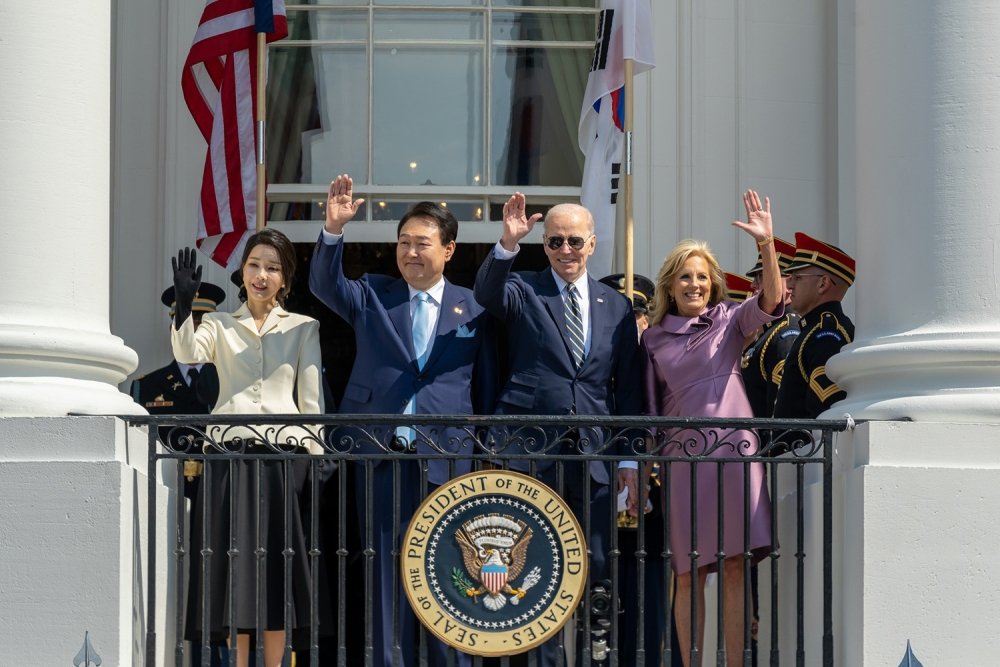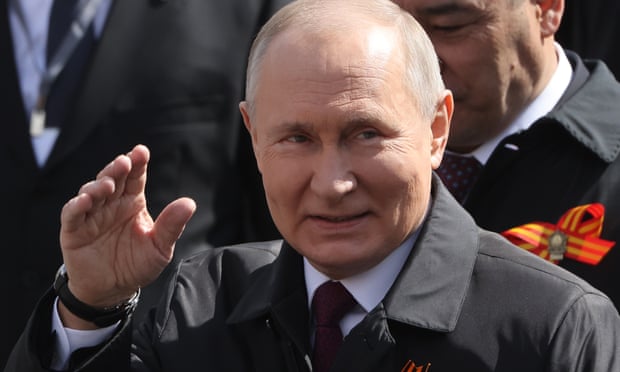
The US Chooses Interests over Values
(South Korea) on 3 May 2023
by Kim Yujin (link to original)
A reporter asked President Joe Biden whether he was reinforcing regulations targeted at China on semiconductors, which have hurt U.S. allies like South Korea, with the presidential election in mind. Biden replied that the CHIPS and Science Act is "generating significant economic growth in America and not hurting anybody ... I think it's a win-win." His answer was unsurprising. It was the same response the U.S. has given every time it was pointed out that laws like the CHIPS Act and the Inflation Reduction Act inflict costs on foreign businesses.
But this time, South Korean President Yoon Suk-yeol was standing right next to Biden as he gave the answer. South Korea had taken a direct hit from Biden's "America First" stance, forced to choose between the U.S. and China for its semiconductor industry. Moreover, just a couple of hours before the conference, Yoon had declared the following: "The ROK-U.S. alliance is not a transactional relationship; it does not operate for the sake of mere interest. The ROK-U.S. alliance is an alliance of values, standing together to safeguard the universal value of freedom. Thus, the ROK-U.S. alliance is a just alliance."
Somehow, it seemed as if the two presidents have switched roles — the president of the global superpower advocated for urgent national security and economic interests, while the South Korean president pompously preached the idea of a "value-based alliance."
The joint statement released at the U.S.-South Korea summit clearly reflects the U.S.' attempt to impose its own perspective and pursuit of national interest. It included increased cooperation between South Korea, the U.S. and Japan; joint response against economic coercion; collaboration in establishing supply chain security, export control and overseas investment review; and even the Korean president's pledge of support for AUKUS. All of these would bring South Korea to the frontlines of the competition against China, which is the U.S.' foremost objective.
The Washington Declaration was no exception. For South Korea, the establishment of a Nuclear Consultative Group and the regular deployment of strategic assets such as ballistic missile submarines are clearly a step toward progress. However, the U.S. has made it clear that South Korea must continue to comply with the Nuclear Non-Proliferation Treaty, along with its promise to provide enhanced deterrence. The intention was to quell concerns over nuclear proliferation in the region by holding back calls for independent nuclear arms development within South Korea. This is relevant to the U.S.' goal of maintaining the international nonproliferation system, especially regarding North Korea and NPT nuclear-weapon states China and Russia.
The "value-oriented diplomacy" emphasized by President Yoon has a long history that dates to the administration of former U.S. President Jimmy Carter. However, it was constantly put to the test whenever issues regarding democracy and human rights were highlighted. Historically, when its values and interests clashed, the U.S. has usually chosen the latter without hesitation.
Therefore, with all due respect, I dare to correct President Yoon's "alliance theory" as follows: "The ROK-U.S. alliance may undergo a conflict of interest at times but navigates through problems based on trust. The ROK-U.S. alliance is an alliance that respects universal values and norms and seeks to achieve global peace and prosperity."
I also recommend removing the term "just alliance" altogether. Whether it is an alliance, individual, group, society or state actor, nothing is just in itself.


